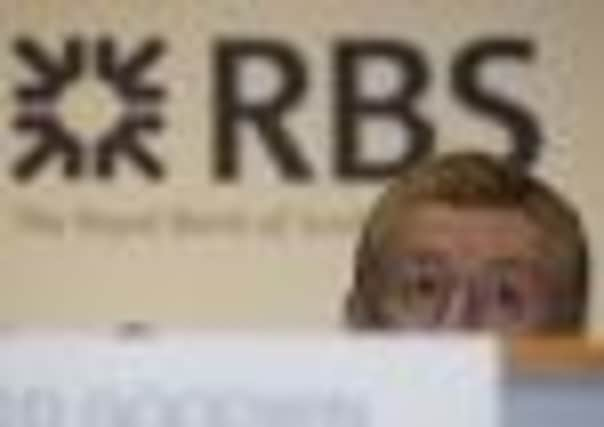Jeff Salway: Shredding Fred Goodwin knighthood won’t bridge divide


As the pantomime villain of the banking crisis – a convenient scapegoat to some extent – the shedding of Fred the shred’s status was always going to be a popular move, albeit not without some disquiet over the apparent hypocrisy in targeting the ex-RBS man and not other knights of the realm with decidedly, ahem, shady pasts.
But with the bank’s bonuses under the spotlight, too – and the row set to escalate over the coming weeks as other banks declare their payouts – the debate over income inequality may have only just begun.
Advertisement
Hide AdAdvertisement
Hide AdIncome inequality is at its greatest since the 1920s. In the US, for example, the top 10 per cent earn 50 per cent of all income, and the top 1 per cent earn 20 per cent. The ratio isn’t that different in the UK.
But why has that inequality gap widened so much? Economist Jeremy Beckwith points to an explosion in supply at the lower end of the labour market, with China and India estimated to have tripled the number of people globally seeking industrial jobs. Not only has that pushed down the price for that labour, but the stagnation in real wages has helped inflate profits – with the executives at the top reaping the biggest rewards.
This is most visible at the banks – recently published figures show 1,265 top staff at the leading London banks got average bonuses of £1.8 million in 2010, not a year in which they were conspicuously successful.
The gap has been accelerating for the best part of 30 years but only now, as households struggle to alleviate growing financial pressures and the banks take the rap for the mess we’re in, is it becoming a greater political issue.
Until recently accepted as a by-product of capitalism, income inequality at its current level is increasingly viewed as being unfair and unsustainable, thanks partly to the global Occupy movement.
However, Beckwith points out that the nature of rising inequality itself will make it difficult to address, with the richest able to pick and choose where they earn and where they pay tax. The pathetic complaints over the financial transaction tax, with the government claiming bankers would flee the UK (without any evidence to support that suggestion) show how potent this element of globalisation can be.
The sense is that income inequality is finally on the debating table, especially in the US, where the front-runner for the Republican nomination in the presidential race, Mitt Romney, has seen his wealth and tax bill become a key issue. Even delegates at the World Economic Forum in Davos identified income disparity as the issue most likely to cause turmoil this year.
After years of accepting a massive earnings divide as inevitable, it is once more being questioned. So what’s next to be challenged? Will public fury at the banks finally manifest itself in more constructive action than writing furious letters to newspapers?
Advertisement
Hide AdAdvertisement
Hide AdMost of us still bank with a small handful of familiar, dominant brands. We don’t have to.
Whether it’s your local building society, a credit union or a smaller high street name such as the Co-operative, there is an alternative.
When it comes to savings in particular, the big banks are lagging behind building societies. More than three years after the banking crisis, the numbers switching away from them remain low – and that renders hollow our complaints at the perceived villains
It’s now more than 18 months since the government scrapped child trust funds (CTFs) and over a year since the last vouchers were issued.
For children born since 1 January 2011, they have been replaced by junior Isas (Jisas), which don’t come with a £250 government voucher (£500 for lower income families) but do repeat some of the flaws of CTFs, namely a lack of parental control at maturity.
But thousands of parents are still sitting on CTF certificates that are yet to be invested, it turns out.
Of the 555,000 issued (in the year to the end of June 2011), some 136,000 have not been taken up, according to HM Revenue & Customs.
What is particularly unfortunate is that parents who have received vouchers – regardless of whether they have invested them – are not eligible for Jisas. The rules for Jisas for some reason exclude not only children whose parents have invested CTFs on their behalf, but also children born within the eligibility window (between 1 September 2002 and 1 January 2011). Yet calls to merge CTFs into Jisas have fallen on deaf ears.
Advertisement
Hide AdAdvertisement
Hide AdI suspect some of the thousands of parents who failed to invest the last vouchers assumed they would be able to take out Jisas instead. Perfectly logical, but not logical enough for the Treasury, it seems.